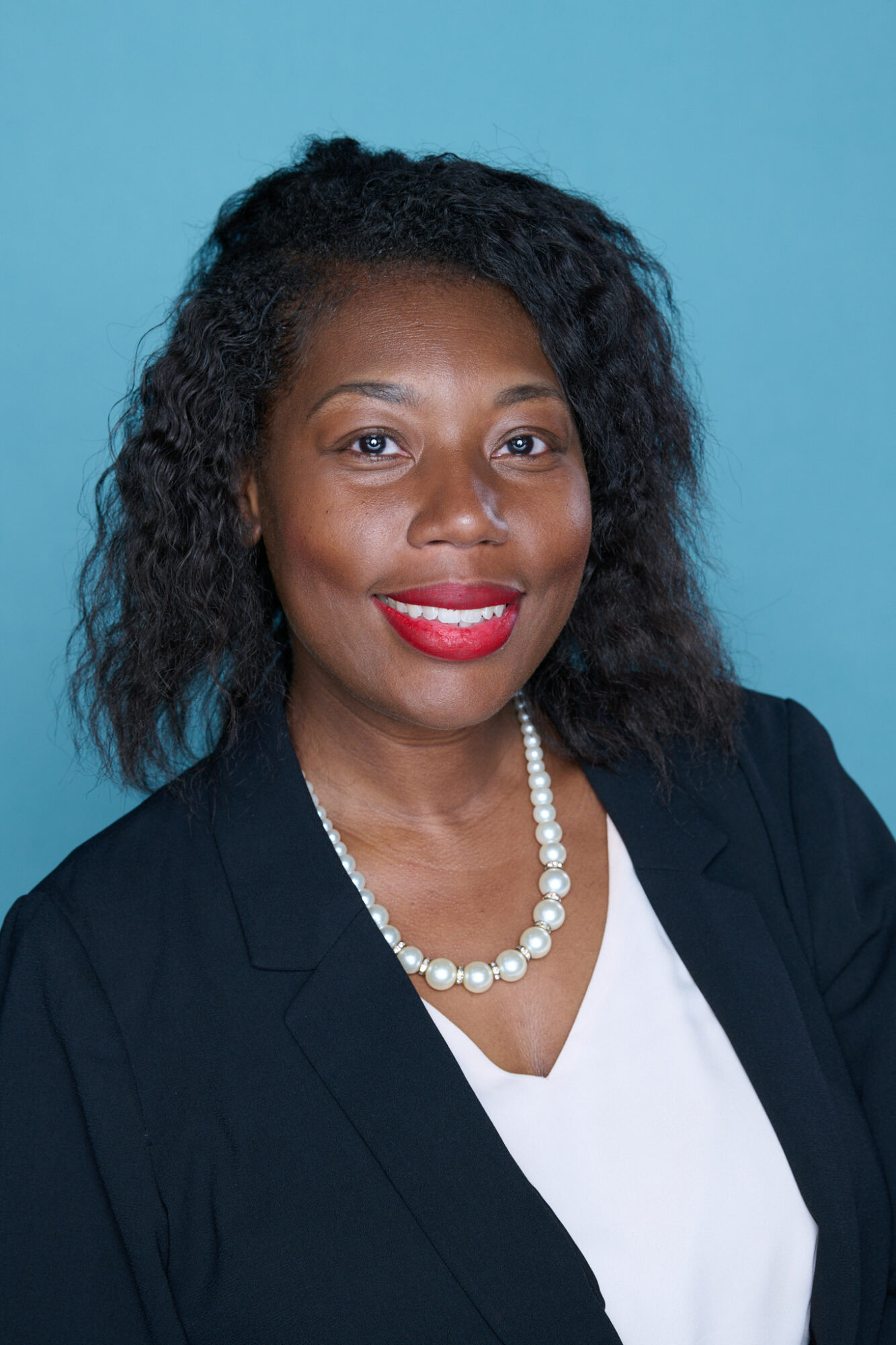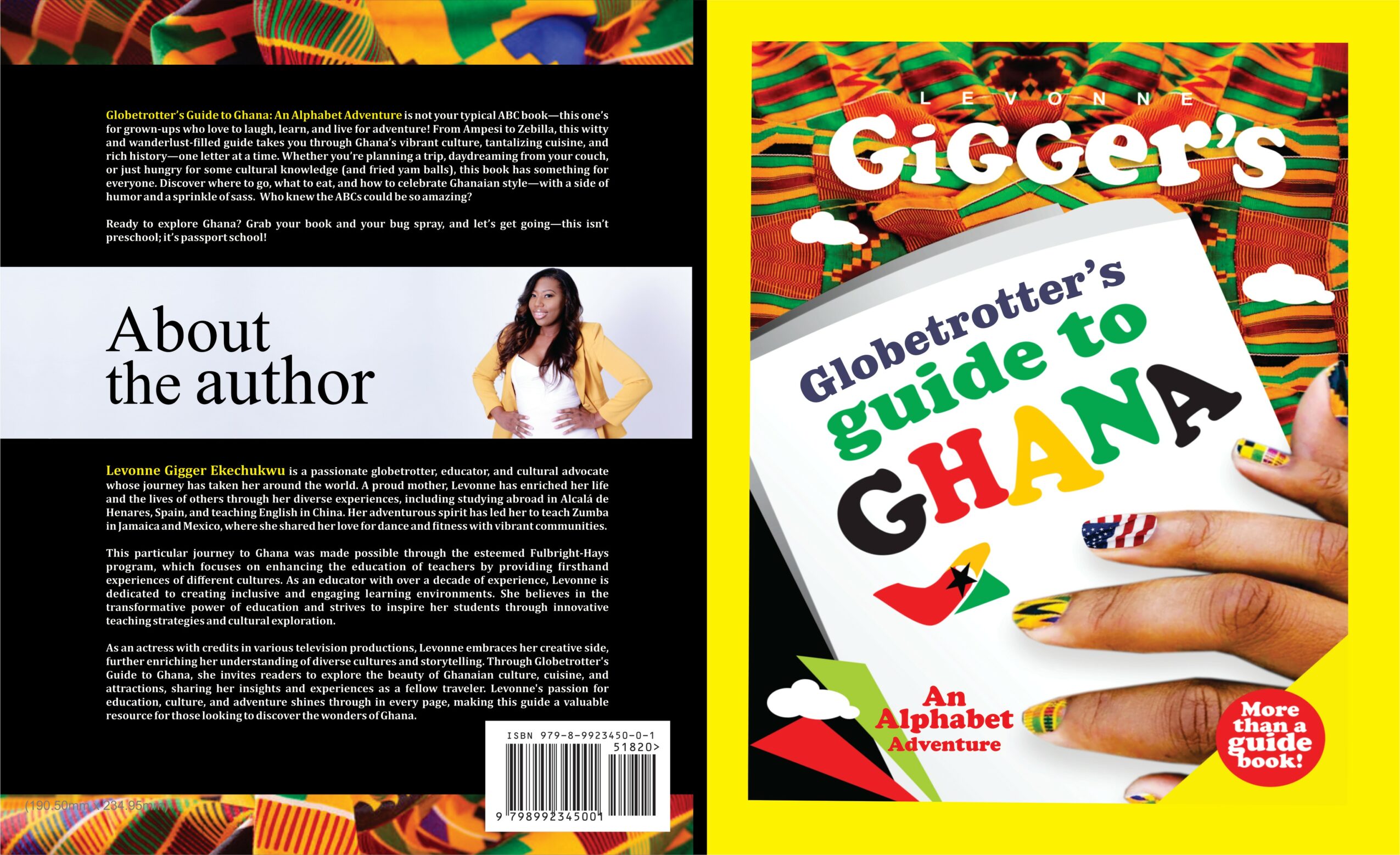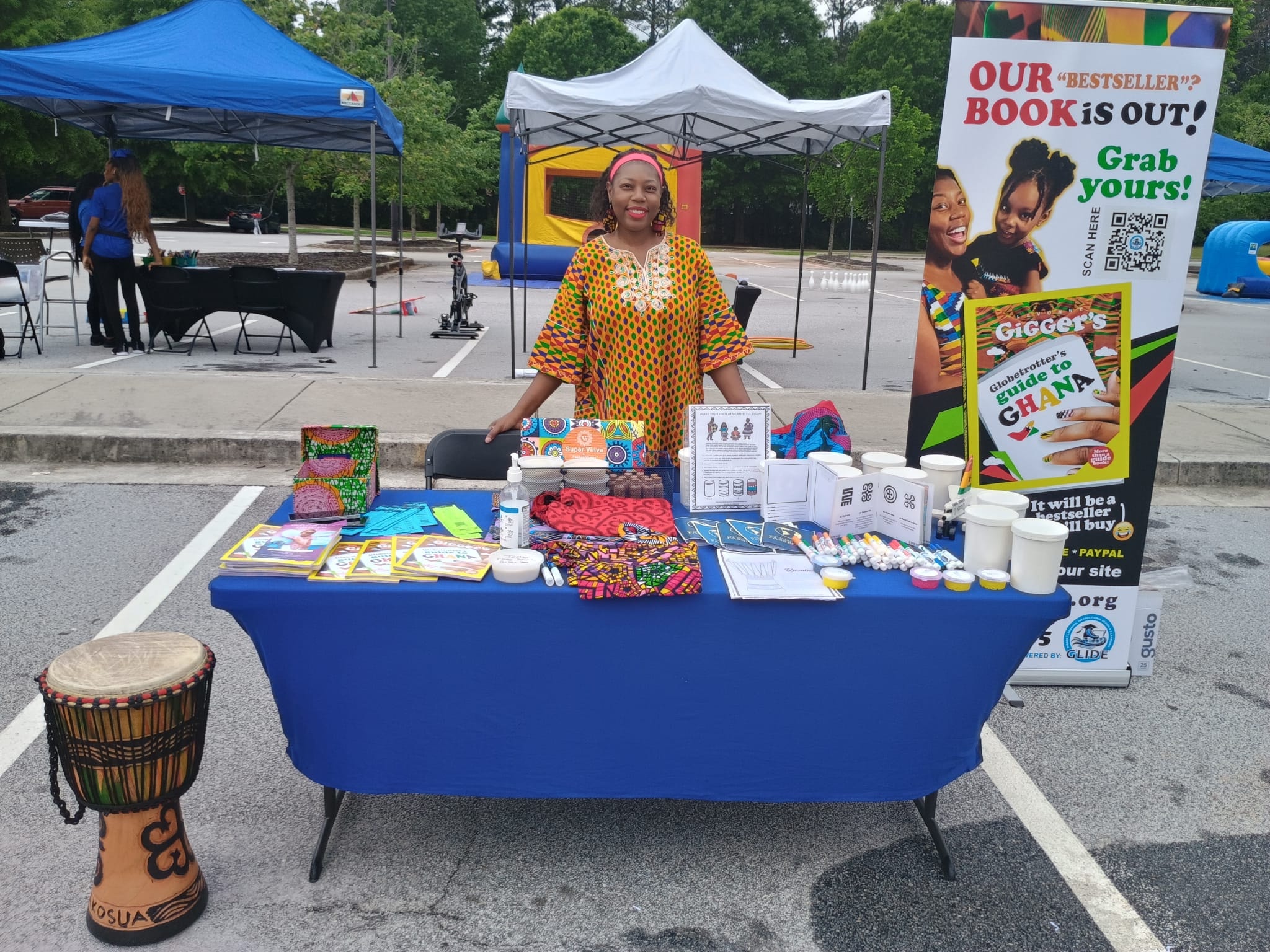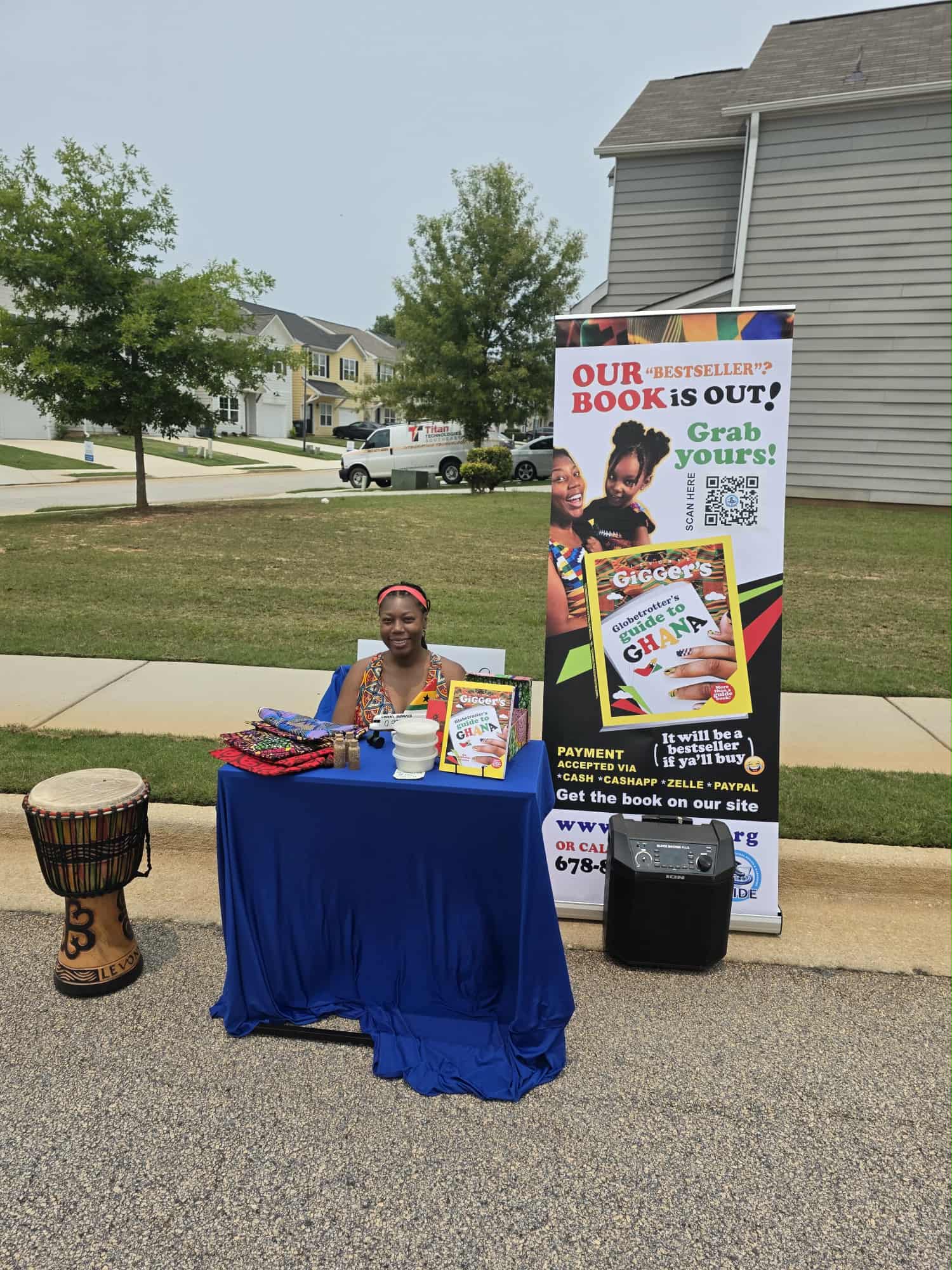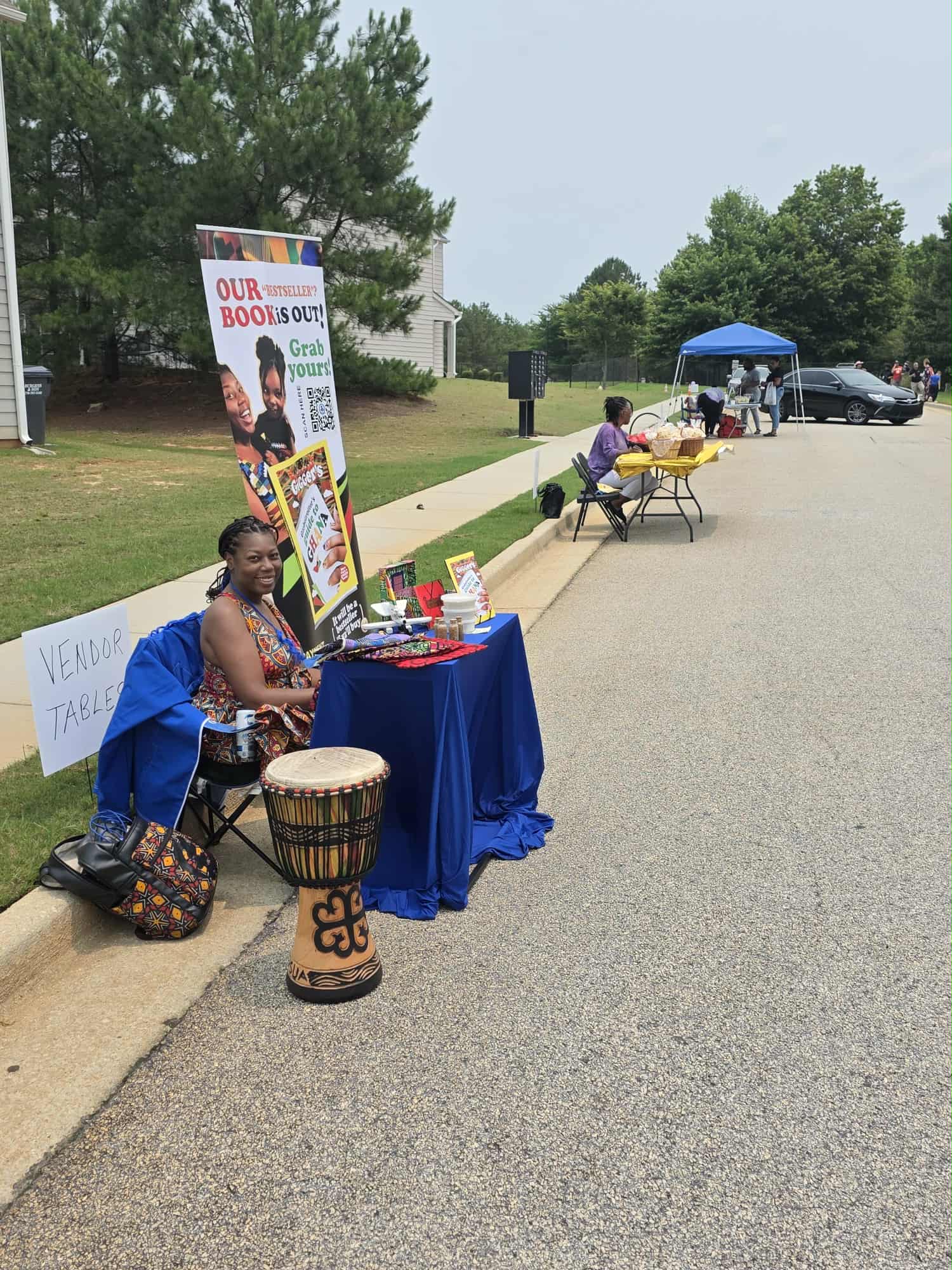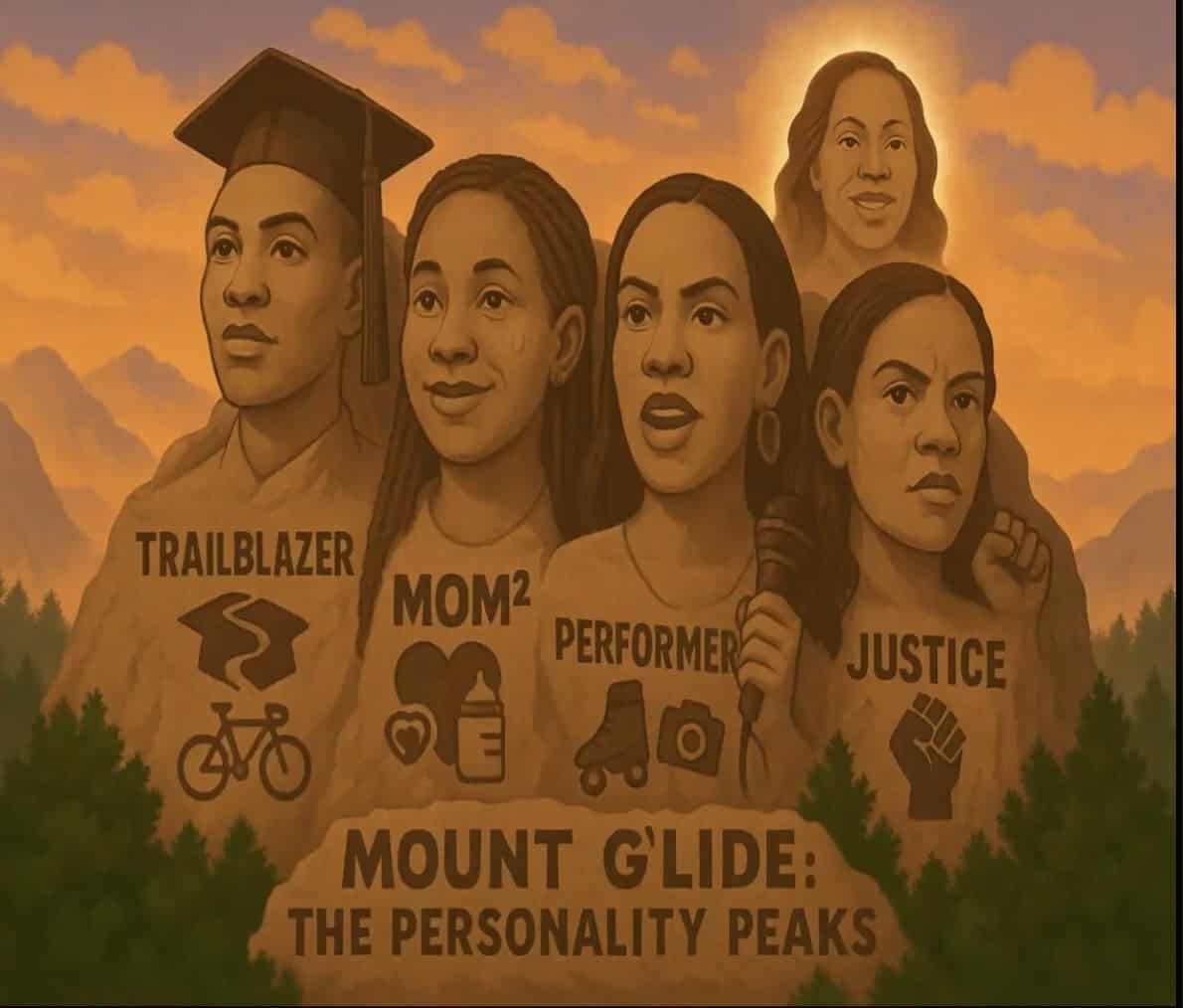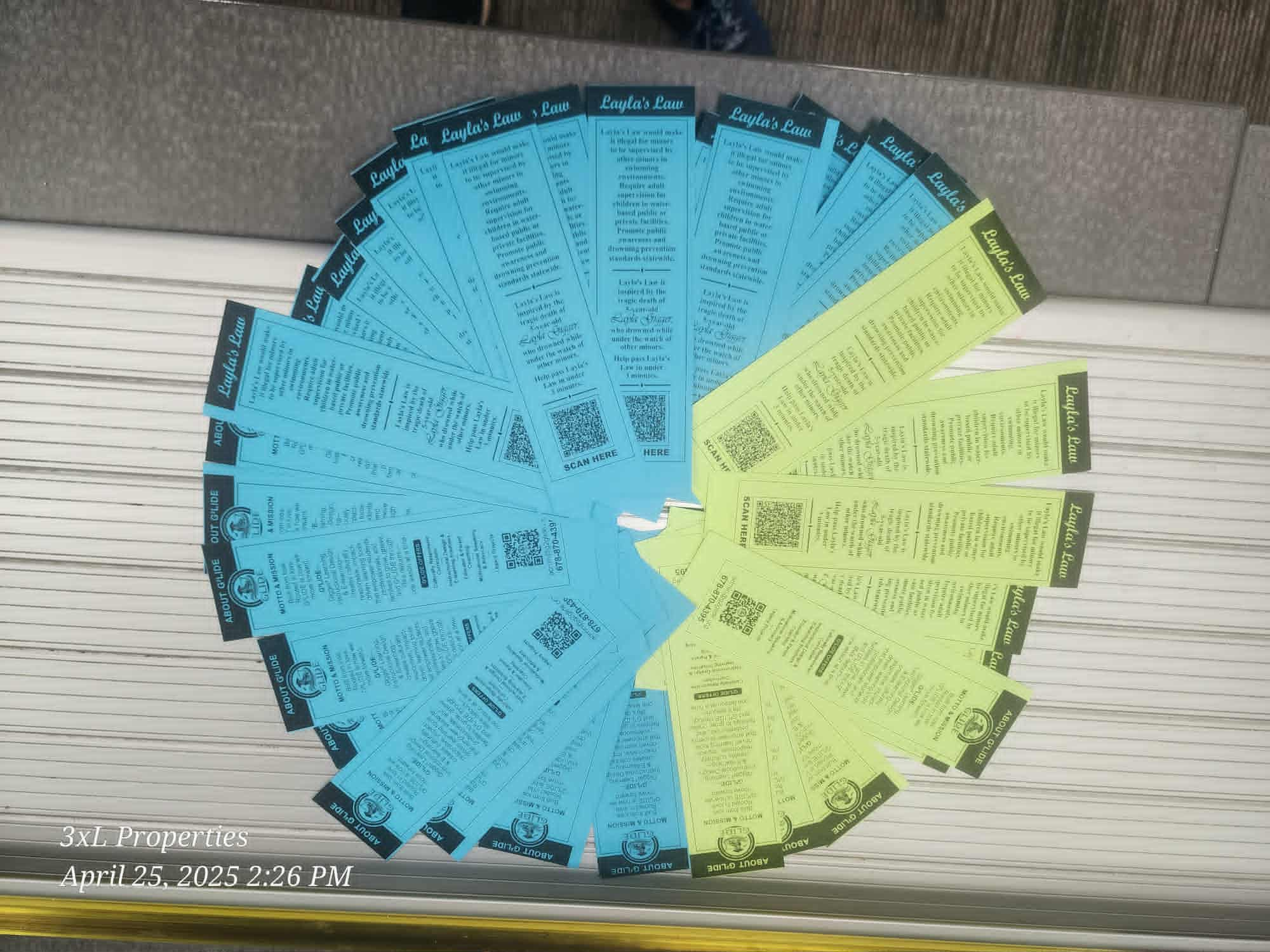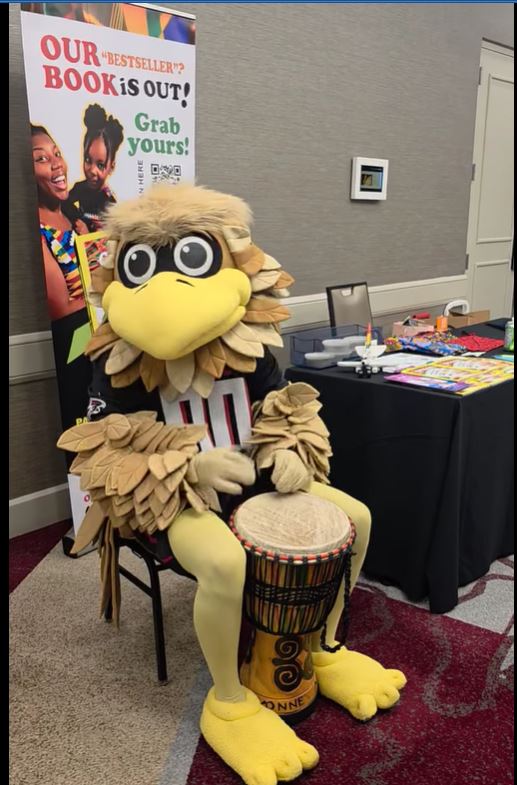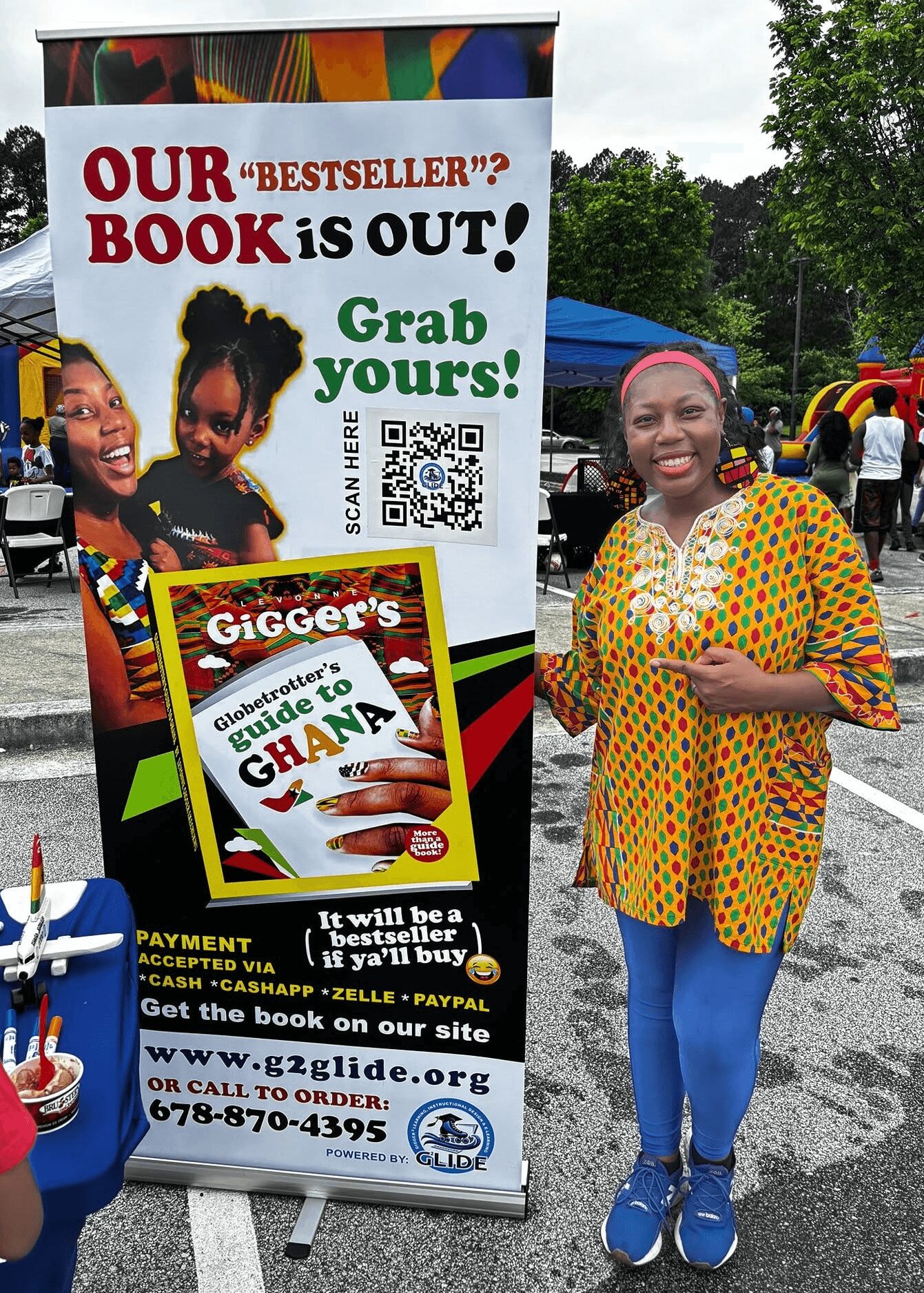

We’re looking forward to introducing you to Levonne Gigger Ekechukwu. Check out our conversation below.
Levonne, really appreciate you sharing your stories and insights with us. The world would have so much more understanding and empathy if we all were a bit more open about our stories and how they have helped shaped our journey and worldview. Let’s jump in with a fun one: What’s more important to you—intelligence, energy, or integrity?
Integrity is the most important to me, hands down. We live in a time where people chase ‘good vibes only’ or try to be the smartest person in the room — and yes, energy and intelligence matter. But without integrity, those things can be empty. I saw a meme recently that said, ‘My face when someone says, just ChatGPT it, instead of just Google it.’ And it made me laugh because we’re in this age of information where intelligence is everywhere — AI tools, search engines, endless data. Energy is everywhere too — everyone’s curating ‘positive vibes’ or ‘protecting their energy.’ But what’s missing at times is integrity.
For me, integrity is being good at the core — doing the right thing even when no one is watching, being honest in your dealings, and letting your values guide both your intelligence and your energy. The Bible says, ‘The integrity of the upright guides them’ (Proverbs 11:3), and that’s the foundation I try to live from. It’s what keeps me grounded as a woman, an entrepreneur, and in everything I build — from my businesses to my advocacy. That’s the part I want my work to communicate most: that it’s rooted in integrity.
Can you briefly introduce yourself and share what makes you or your brand unique?
The last time I was interviewed with VoyageATL, I shared about my business SophistiTwerk LLC — a dance fitness brand where I used African-inspired twerk, my Zumba training, and my educator’s mindset to help people: 1) have fun getting fit, 2) build body confidence, and 3) rekindle romance. Since then, my journey has expanded in ways I couldn’t have imagined.
I’ve launched G²LIDE — Gigger² Learning, Instructional Design & E-learning, where I combine my Master’s degree (slight flex, LOL) in education with creativity to build culturally responsive learning tools, trainings, and books. My debut travel book, Globetrotter’s Guide to Ghana: An Alphabet Adventure — an ABC book for adults — is already in schools and libraries. What makes it even more special is that a portion of every sale funds a swim scholarship initiative in memory of my 5-year-old granddaughter, Layla.
Alongside that, I run 3xL Properties, offering Airbnb and film-location rentals, including my home with a dance studio that reflects my own ‘Homeless to Homeowner’ journey. And I still carry the heart of SophistiTwerk in everything I do — blending movement, culture, and legacy into experiences that inspire and empower.
Right now, I’m focused on expanding my book series, creating Ghana-inspired Airbnb Experiences that pair food, music, and storytelling, and advocating for Layla’s Law, which aims to strengthen child safety at swimming facilities. My story is about turning both grief and creativity into global impact — using every gift I’ve been given to build something bigger than me.
Okay, so here’s a deep one: What did you believe about yourself as a child that you no longer believe?
As a child, I honestly believed I was ugly — like truly ugly. I grew tall early, had long arms and legs, and by 5th grade I was already 5’0 with size 10 shoes, towering over the boys. Kids gave me nicknames like ‘Spider Monkey.’ And because of my lips, I got called ‘big-lipped monkey’ and even ‘DSLs’ — yes, that one — the sexual reference. I was just a little girl, but to have something so adult and inappropriate thrown at me was mortifying.
Now, I was raised C.O.G.I.C., so my mama stayed covering me with affirmations and prayer. She told me I was beautiful, that one day people would pay money to have lips like mine. But I didn’t believe her. I thought, ‘She’s just saying that because she’s my mama.’ And between the church saying red lipstick was a sin and society saying dark-skinned girls couldn’t wear it anyway, I was convinced the world had the objective truth: I was ugly.
I spent years avoiding mirrors and planning that I’d get a lip reduction as soon as I could. I carried that lie well into adulthood.
But right before I turned 40, something shifted. I started to catch myself thinking, ‘Wait… I don’t actually think I’m ugly.’ And then last year, someone posted an old C.O.G.I.C. youth department picture. I spotted myself IMMEDIATELY — because baby, those afro puffs were huge. 😂 And you know Black girls from the 80s had to prove they had hair, so I was like, ‘Ohhh yeah, that’s me with the big ol’ puffs!’ Looking at that little girl, I said out loud, ‘Yoooo, I was really a cute lil’ girl. My momma was right. Y’all lied to me!’
That moment was freeing. But it also made me realize how much time I wasted letting other people’s words dictate my worth. Now, I see myself differently. I know I’m beautiful, inside and out. And that’s why I’m passionate about building confidence in others — whether through dance, education, or storytelling — because nobody deserves to spend decades believing lies about themselves.
When did you stop hiding your pain and start using it as power?
The truth is, I never really hid my pain — I’ve always believed transparency is power. I’ve been told I ‘overshare’ or that I ‘use Facebook like a diary,’ but for me, sharing my struggles in real time has always been intentional. I post about the good, the bad, and the ugly, because somebody needs to see that you can be broken and still be carried by God.
Suffering has taught me lessons success never could: how to be resourceful, how to find God in the dark, and how to carry compassion for others. My hardest seasons — grief, loss, being overlooked — taught me that my story isn’t just mine. That’s why I share resources, whether it’s a grief class, a food pantry, or just a word of encouragement.
This past Sunday my pastor said something that stuck with me: ‘Compassion fuels action. Whenever Jesus had compassion on someone, he always acted on the situation.’ That’s how I live. My transparency isn’t just about telling my story — it’s about moving people to healing, hope, and help.
People say, ‘I’d never let strangers see me like that,’ but I know somebody scrolling needs to. If God allowed me to go through it, I refuse to let it be wasted. My pain became my platform, and compassion is what keeps me using it to serve others.
I think our readers would appreciate hearing more about your values and what you think matters in life and career, etc. So our next question is along those lines. How do you differentiate between fads and real foundational shifts?
I’ve learned to tell the difference between a fad and a foundational shift by looking at longevity and impact. Fads come in fast and loud — whether it’s a new diet craze, a viral dance, or even the latest teaching platform. They might get attention, but they don’t always change lives. Foundational shifts, though, reshape how people live, think, and thrive.
In fitness, I’ve seen waist trainers, detox teas, and quick-fix challenges come and go. They made noise, but they didn’t create lasting health. What I saw make a real difference was when people found joy in movement, built body confidence, and learned to love themselves in the process — that’s foundational.
In education, apps and tech tools rise and fade. But the real shift came when schools realized that culturally responsive teaching isn’t optional — it’s essential. Tools may change, but creating learning spaces where every child feels seen and capable is a foundation that outlasts any trend.
Even in advocacy, the same applies. Social media can make a tragedy trend for a week, but then it’s on to the next headline. For me, losing my 5-year-old granddaughter Layla to a drowning wasn’t a moment — it was a mandate. Out of that pain came Layla’s Law, a push to make it illegal for minors to be left in the care of teenage minors at public swimming facilities like pools, beaches, and apartment complexes. At home, a 13-year-old might babysit a sibling, but around water, the risk is too great. Layla’s Law is about closing that gap and making sure children are protected, no matter where they swim. That’s not a fad — that’s a foundational shift in child safety.
And here’s where I invite you in: you can take 5 simple steps for Layla by clicking here → Take 5 Steps for Layla: https://docs.google.com/document/d/1zJ5_N4K9NZwGuzhF0j3m9fPfTN4c2aZ5MVlO_6j3u44/edit?usp=sharing
.
Because at the end of the day, fads make noise, but foundations make impact.
Okay, so let’s keep going with one more question that means a lot to us: What is the story you hope people tell about you when you’re gone?
When I’m gone, I hope the story people tell about me is that I turned pain into purpose, and that I never wasted a gift God gave me. I want them to say I was a woman who started as a teen mom but became a trailblazer — that I built things that lasted, not just for myself, but for my family, my community, and for generations to come.
I want people to remember that I used dance and fitness through SophistiTwerk LLC not just to help people work out, but to help them laugh, rebuild confidence, and even rekindle love in their homes. I want them to remember that through G²LIDE — Gigger² Learning, Instructional Design & E-learning — I created culturally responsive books, trainings, and tools that opened doors for others to see themselves in education and in life. My debut book, Globetrotter’s Guide to Ghana: An Alphabet Adventure, wasn’t just about travel — it was about connection. And I want people to know that every page carried my granddaughter’s memory forward, since proceeds go toward a swim scholarship in her honor.
I want them to tell the story of Layla’s Law — how the tragic loss of my 5-year-old granddaughter to drowning didn’t stop with grief, but became a movement to protect children at public pools and swimming facilities. That I showed we don’t just go through grief — we grow through grief. And in that growth, we can plant seeds that blossom into safety, awareness, and legacy for others.
And I want them to remember my home — not just as 3xL Properties or an Airbnb, but as a living testimony of going from homeless to homeowner, from survival to sanctuary, from brokenness to beauty.
If people can tell the story that I turned grief into global impact, that I fought for my family and community, and that I lived out my faith with integrity, then that’s enough. Because titles fade, businesses pass on, but legacy lives in the lives you touched. I want my story to remind people that with God, even detours can become destiny.
Contact Info:
- Website: https://www.g2glide.org
- Instagram: https://www.instagram.com/g2lide/
- Linkedin: https://www.linkedin.com/in/levonne-gigger-ab0a46234/
